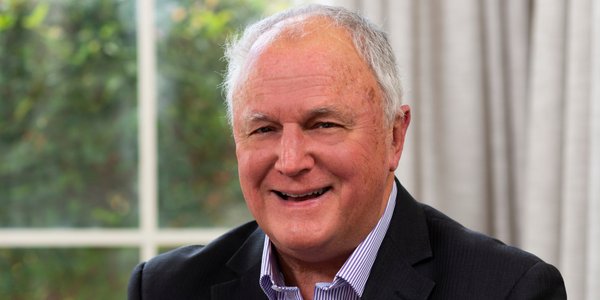Governance news bites – 13 June
A collection of governance-related news you might have missed in the past two weeks.
The quick set-up-and-go structure makes franchising attractive, along with a survival rate of 80% compared to other business models.

New Zealand has the highest number of franchises per capita in the world, many of which have come from Australia.
There are 590 franchised brands and over 32,000 franchise units, according to the 2021 Survey of Franchising, conducted by Massey University and the Franchise Association of New Zealand (FANZ). The turnover from business-format franchises is $36.8 billion, climbing to $58.5 billion when motor vehicle sales and fuel retail are added. And the total number of people employed in New Zealand franchises exceeds 156,000.
Stewart Germann CFInstD is a franchise lawyer and owner of The Franchise Coach founded by David McCulloch. Established in 1990, the organisation has been helping new franchisors set up in what Germann describes as a dynamic and fast-moving marketplace.

Stewart Germann
“I’m bringing a lot of brands into New Zealand, including Boiling Crab and QC Kinetix. People love franchises and franchise brands,” he says.
Gong Cha is the next name to roll off his tongue. The first one was set up in New Zealand in 2015 and was born out of Taiwan in 2006, bringing bubble tea drinks into the mainstream.
With an assortment of hot and cold beverages and milky brews boasting flavours such as red bean and pudding, Japanese matcha, and herbal jelly and pearl, bubble tea is now as commonplace in inner city Wellington and shopping malls in Auckland as they are on the streets of Hong Kong and South Korea.
“The product needs to be good and that’s why people come back,” says Germann of the secret behind franchising’s success.
He believes the appeal of franchises to Kiwis as a business model is due to its quick set-up-and-go structure. Covid-19 also presented an opportunity for those with an entrepreneurial spirit looking for a career change. “Franchising is good in both good and bad times,” says Germann on the impact of the lockdowns.
The other secret ingredient to franchising are the people – for the franchisors, the franchisees are their biggest asset.
“The franchisee is part of the franchise family and that’s why the people have to be chosen very carefully. If you get it wrong, you’ll suffer the consequences with a franchisee who has to exit,” he says. The franchisee survival rate is 80% compared to other business models, which also makes them an appealing lending investment for banks. “They’re a safe bet because between four and five new businesses fail within the first five years, so banks love franchise systems because of the power in the brand. Banks can also lend unsecured for two years to some franchisees, like McDonald’s, because they know the safety margins.”
“The franchisee is part of the franchise family and that’s why the people have to be chosen very carefully. If you get it wrong, you’ll suffer the consequences with a franchisee who has to exit.”
The other benefit of the franchise model is that just about anything can be franchised. “In America, there are franchises selling medical marijuana and anything that’s legal can be franchised, including goods and services. Food is always a great goer,” he says.
Walking around any New Zealand city centre or indoor mall, you will likely see franchises without even realising. The health and wellness sector is seeing popularity with the likes of Dilworth Audiology, Specsavers and Lumino the Dentists – all franchises that have become part of our consumer landscape as brands we know and trust.
Ensuring a franchise stays afloat relies on the first franchisee off the block. It is a crucial time when the system is tested and developed with everything in place, including employment contracts and workplace health and safety regulations.
A code of practice will already have been established and then it is the board’s responsibility to be across issues such as climate change, supply chains and compliance.
The board also needs to ensure the franchisor has set up effective management to feed into the continuity of the brand across its marketing and the management of franchisees under its umbrella. Field managers or staff are responsible for checking in with franchisees and making sure they are adhering to the system.
But if the franchise model has been set up to help the franchisee succeed, why is it that some franchise brands hit the headlines?
Germann says nothing is fail-safe. Today, franchisors often use psychological reports in assisting with the decision-making process before bringing new franchisees into the system. “Some people lie on those tests, but again, you look at the main attributes, like do they have business acumen? You also don’t want to under-capitalise.”
Germann says the best franchisees succeed because they have a commitment to the bank and the franchisor, and that feeds into their compliance with, and adherence to, the system once they have been trained. But even then, people still fall through the cracks.
“The last thing a franchisor wants to do is order a franchise notice because it’s quite serious,” he says. “You’ll always get the renegade franchisee coming out of the woodwork and not following the system. After years they ask themselves why they’re paying royalties because they think they know the system.”
“You’ll always get the renegade franchisee coming out of the woodwork and not following the system. After years they ask themselves why they’re paying royalties because they think they know the system.”
Germann says the royalties essentially pay for the additional and continued support that franchisees receive from the franchisor. But it is rarer for franchisors to go rogue.
Green Acres was embroiled in a long-running fraud case which ended in former franchisee master Keith Lapham being jailed for three years and eight months. He had lured more than 200 people, mostly recent immigrants, to buy into the franchise, promising huge returns on their investment.
“The franchisees paid up to $25,000 for an ironing franchise and it was a jack-up where Tom Cruise was one of the clients. It was all a hoax and the franchisees were largely Asian and didn’t speak English,” says Germann.
The system is much more robust today and is helped by a code of practice, a code of ethics and franchise rules written by Germann in 1996. He says they have not needed to be altered since.
New Zealand, along with the UK and Singapore, are the only countries left without mandatory franchise legislation. But Germann doesn’t see a need for one here. “We have the Commerce Act 1986, the Fair Trading Act 1986, the Contract and Commercial Law Act 2017. There’s enough teeth there and if you belong to FANZ you have to have a disclosure document.”
Members of FANZ are protected through its support and advice, and all of its members are rigorously checked and vetted. The Commerce Act also ensures that no one dominates within the franchise business model, according to Germann.
“You have to be careful with vertical and horizontal expansion and you’ve got to comply with that. Competition is very healthy, but some people are getting into trouble with anti-competitive behaviour around pricing and supply, or preferred suppliers,” he says.
For pure franchising, the franchisee is under contract and relies heavily on the system. But new models and private equity now allow more money to be invested into the system, which means franchisees can invest more and leave with an increased return.
He mentions cooperatives such as Top 10 Holiday Parks and Paper Plus – two examples where the franchisor owns the system and IP and the franchisee has shares in the franchisor company. The franchisee buys the business for a period of years and has the right to sell the business, or have its terms renewed as an independent business. According to Germann, there is a high survival rate for those operating under this model.
For those wanting to take the leap into the franchise world, Germann suggests talking to at least half a dozen franchisees and doing your research, including listening for positive and negative experiences before making a decision to invest.
“The brand is sacrosanct, so a franchisor must do everything it can to protect it with trademarking and intellectual property. Manuals are copyrighted to the franchisor and the franchisees know that, so they can’t denigrate the brand in any way.”
If a franchisor has disgruntled or unhappy franchisees, Germann says the franchisor and the board need to address it. “Some franchisees are unreasonable and then have to part ways – you can see if they aren’t fitting in after two years. Most franchises have minimum performance criteria with expectations to do a $200,000 turnover, for instance,” he says.
A franchisor in New Zealand could have up to 40 franchisees under its umbrella, and if a situation arises where a franchisee is experiencing issues and the franchisor won’t listen, who should they speak to?
Germann has acted on behalf of unhappy franchisees and says numbers speak volumes. In one example he had 15 people come forward.
For those on a franchise board, Germann suggests issues be dealt with quickly before they get to the media. But under stressful circumstances when franchisees feel they have no other option, he feels the media also needs to be responsible and get two sides of the story.
For the franchisor and the board, brand reputation is everything and that includes across social media, where Germann says franchisors have social media teams scanning worldwide for comments and feedback.
“The brand is sacrosanct, so a franchisor must do everything it can to protect it with trademarking and intellectual property. Manuals are copyrighted to the franchisor and the franchisees know that, so they can’t denigrate the brand in any way,” says Germann.
But once a story hits the headlines it can make things much harder. “The worst thing a franchisor can say is ‘no comment’,” he says. “Franchisors are savvy, but they should also have legal, accounting and tax advice and listen to competing issues. They are also invested in trying new ways to market their products and reach their customers, so they want their franchisees to be successful.”
“Franchising is no different from any other non-franchised business and the Four Pillars of governance best-practice must be present, monitored and adhered to at all times”